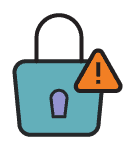Marketing Insights
Building Better Websites Part 3: Web Security and Hosting
In parts one and two of this series, we covered the initial stages of web development and design. By this time, you already know that hiring a strong web designer is an important step in creating a site that meets your unique needs. You’ve also learned a little more about user experience and how intuitive design can drive conversions and optimize your return on investment. In our third installment, we want to help you understand how to protect your website investment, post development.
Whether you hire out to design and develop your website, or you use an internal team and resources, it takes time to do it right. Once you’ve made the investment, it’s just as important to maintain the site’s security and to host it on servers managed by a reputable hosting service. Maintaining the validity of your site’s security certificate and keeping it updated with the latest software versions are the best ways to protect you and your customers. Hosting your site with a reputable and reliable provider is also the safest way to eliminate downtime and ensure responsiveness.
 You may already be familiar with security certificates. Most people associate security certificates to the URL of a website, believing that a URL beginning with HTTPS is secure, while a site beginning with HTTP is not. This, however, is a common misconception. Websites can be registered as an HTTPS without ever having a valid security certificate. You may have also interacted with a site blocking notice or security warning in your web browser when attempting to visit an unsecure site. Browsers like Chrome will notify you if you are navigating to an unsecure site and require an additional verification before proceeding. The potential for losing traffic to these security blocks alone is sound reasoning to utilize a security certificate, but the implications of an unsecure site are much greater than simply reduced site visits.
You may already be familiar with security certificates. Most people associate security certificates to the URL of a website, believing that a URL beginning with HTTPS is secure, while a site beginning with HTTP is not. This, however, is a common misconception. Websites can be registered as an HTTPS without ever having a valid security certificate. You may have also interacted with a site blocking notice or security warning in your web browser when attempting to visit an unsecure site. Browsers like Chrome will notify you if you are navigating to an unsecure site and require an additional verification before proceeding. The potential for losing traffic to these security blocks alone is sound reasoning to utilize a security certificate, but the implications of an unsecure site are much greater than simply reduced site visits.
 Security certificates are an important requirement to maintain data privacy for you and your customers. If you pull data from your site visitors, through forms, purchases, surveys, or cookies that information needs to be protected from malicious parties. A security certificate encrypts the data being sent to and from websites. For example, when a user fills out a contact form on a website with a security certificate, that information will be encrypted as it flows from the user’s web browser to the website’s server where the data is processed. Without a security certificate, that information can be intercepted and read by a malicious party. The certificate is a guarantee that user information is being protected, which is especially important for websites that have ecommerce features and may collect information such as credit card numbers. Security certificates are not guaranteed with the development of a website so it’s important you work with an experienced professional to ensure it is set up properly and renewed when necessary.
Security certificates are an important requirement to maintain data privacy for you and your customers. If you pull data from your site visitors, through forms, purchases, surveys, or cookies that information needs to be protected from malicious parties. A security certificate encrypts the data being sent to and from websites. For example, when a user fills out a contact form on a website with a security certificate, that information will be encrypted as it flows from the user’s web browser to the website’s server where the data is processed. Without a security certificate, that information can be intercepted and read by a malicious party. The certificate is a guarantee that user information is being protected, which is especially important for websites that have ecommerce features and may collect information such as credit card numbers. Security certificates are not guaranteed with the development of a website so it’s important you work with an experienced professional to ensure it is set up properly and renewed when necessary.
 Along with maintaining your security certificate, it is equally as important to keep up with both software and plugin updates for your website management system. Malicious parties like hackers look for vulnerabilities in website software that they can use to take control of your site. Hackers are known to steal information and sell it, break into sites to send malicious emails to bulk email lists, or even to intentionally damage or vandalize sites. Sometimes website software vulnerabilities are found after months of research. Once a vulnerability is exposed the software developers will work quickly to fix it, however, site administrators must update their website software to implement the change. If you never update your website management system you will never download the newest version that fixes these vulnerabilities. Hackers explicitly look for outdated websites and use these known vulnerabilities to break in.
Along with maintaining your security certificate, it is equally as important to keep up with both software and plugin updates for your website management system. Malicious parties like hackers look for vulnerabilities in website software that they can use to take control of your site. Hackers are known to steal information and sell it, break into sites to send malicious emails to bulk email lists, or even to intentionally damage or vandalize sites. Sometimes website software vulnerabilities are found after months of research. Once a vulnerability is exposed the software developers will work quickly to fix it, however, site administrators must update their website software to implement the change. If you never update your website management system you will never download the newest version that fixes these vulnerabilities. Hackers explicitly look for outdated websites and use these known vulnerabilities to break in.
Vulnerabilities can be found not only in website management systems, but with plugins and themes as well, so it is important to monitor for updates to all of your site software. There is a delicate balance between updating your platform software and updating your plugins and themes as they may no longer be compatible with each other after updates. It is important to turn to a seasoned web developer to ensure you are keeping your site both up to date and functional.
 While maintaining your security and software is important to the safety of your website and visitors, using a reliable web host provider is crucial to its stability. Websites are generally hosted on protected servers run by web hosting providers which means a third party is in control of the files that build your site. If a web hosting provider goes down, so will your site, stopping all traffic and conversions until they can get their system up and running again. When choosing a company to host your site, it’s important to find a provider that offers secure backups, heavy security, service and support, a reliable uptime, and airtight plans for emergency situations.
While maintaining your security and software is important to the safety of your website and visitors, using a reliable web host provider is crucial to its stability. Websites are generally hosted on protected servers run by web hosting providers which means a third party is in control of the files that build your site. If a web hosting provider goes down, so will your site, stopping all traffic and conversions until they can get their system up and running again. When choosing a company to host your site, it’s important to find a provider that offers secure backups, heavy security, service and support, a reliable uptime, and airtight plans for emergency situations.
The speed of your site is also largely dependent on your hosting provider’s server configuration so take time to analyze the network bandwidth, hard drive speed, memory, and processors of the servers they use. Site load speed is a major variable to search engine ranking and a web host provider with slow servers can push your website lower in search rankings. If this feels overwhelming to you, reach out to a web developer for more information and to vet your web hosting candidates.

All in all, it takes a lot of resources, time, thought, and expertise to design, develop, and maintain a functional, beautiful, and effective website. If you are going to spend the time and resources creating or updating your website, be sure to protect your investment by using an agency well-versed and proven in web design and development. There is a growing need for better, faster, stronger websites as we push towards 2020 and there’s no time like the present to get your business ahead of the competition.
About Us
Ocreative is a Milwaukee marketing agency, with expertise and broad experience in developing digital marketing strategies, and growing their online presence, for their clients. The company’s core values include offering the highest level of customer service, award-worthy quality, and performance that surpasses client expectations. Ocreative is located just outside Milwaukee, and works with clients locally, nationally, and globally. Their clients have access to some of the most fun and knowledgeable professionals around – ones who inspire, educate, and problem solve. The agency provides marketing and brand strategy, advertising and design, website design and social media, and video expertise to their clients, fulfilling their desire for business growth, and their aspiration to make a mark on their industry.

